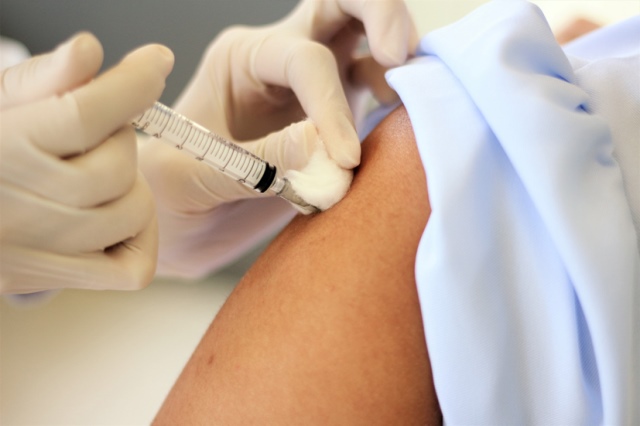A new collaboration between the UK Health Security Agency (UKHSA) and The Pirbright Institute has been launched to support the development of vaccines against henipavirus – a genus (or group) of viruses including Nipah virus. The research has been funded by the Medical Research Council.
Nipah virus can be transmitted to humans from animals and can cause a range of symptoms including severe respiratory illness and encephalitis (inflammation of the brain). The virus poses a current and future threat to global health because the infection has a high fatality rate and there are no licensed vaccines or treatments at present.
Nipah virus is also on the World Health Organisation’s priority pathogen list – a group of pathogens causing infectious diseases that have pandemic potential. Recent cases and outbreaks have predominantly been detected in Bangladesh and India. There have been no cases in the UK to date, but effective vaccines against this virus would provide protection to people in countries where the virus is endemic and potentially protect against imported cases.
Nipah virus belongs to a genus of viruses (henipavirus), and it is possible that a novel virus in this group could emerge, with potential to cause an outbreak. Therefore, rather than focusing on one specific virus as the target for vaccination, the aim is to develop a vaccine that provides cross protection against the whole genus (pan-henipavirus vaccine) addressing the threat of outbreaks from new or emerging henipaviruses and strengthening epidemic preparedness.
Scientists at UKHSA will use a model of Nipah virus disease, which mimics the infection in humans, to evaluate vaccines developed by The Pirbright Institute to determine their protective effects.
Professor Isabel Oliver, Chief Scientific Officer at UKHSA, said: “This study will deepen our understanding of henipaviruses and make significant progress in our efforts to protect health from this current and future global health threat. The work will also make a vital contribution to the 100 Days Mission – an important initiative to make sure the world is better prepared for the next pandemic by accelerating the development of diagnostics, therapeutics and vaccines.”
Dr Dalan Bailey, Viral Glycoproteins group leader and project lead for Pirbright, said: “Understanding whether vaccines for Nipah or other henipaviruses can provide cross-protection against related viruses is a really important first step in the development of broadly acting vaccines. This is especially important as we try to build more robust pandemic preparedness plans in the wake of the Covid-19 pandemic, and we are delighted to be working with UKHSA on this project.”
Successful outcomes from this research will strengthen pandemic preparedness, providing key insights into the effectiveness of pan-henipavirus vaccines and contributing to global efforts in tropical disease prevention.


